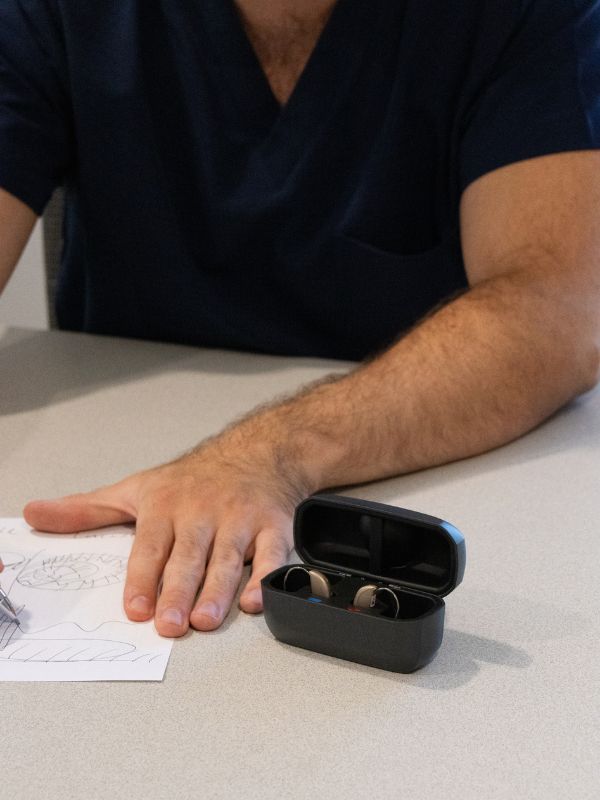Benefits of Treating Hearing Loss
How Hearing Aids Can Help
How Do We Treat Hearing Loss?
Treating hearing loss primarily involves the use of hearing aids, which are advanced tools designed to improve your ability to hear and understand sounds. Unlike amplifiers, modern hearing aids are sophisticated, technology-driven solutions that are tailored to meet individual hearing needs.
The Technology Behind Hearing Aids
Modern hearing aids utilize cutting-edge technology to deliver a precise and customized listening experience. They are not mere amplifiers; they are complex devices that process sound to enhance clarity and reduce background noise while meeting precise targets.
1. Sound Processing: Hearing aids capture sound through a microphone, converting it into digital signals. These signals are then processed to improve sound quality. This includes amplifying softer sounds, reducing unwanted background noise, and enhancing speech clarity.
2. Adaptive Features: Many hearing aids feature adaptive technology that automatically adjusts settings based on your environment. This means they can focus on speech in noisy settings while minimizing distractions from background noise. Nowadays many hearing aids are able to do so with the help of AI.
3. Personalization: Every individual's hearing profile is unique, and hearing aids are designed to cater to this uniqueness. Sound is measured in different frequencies (think low, deep sounds all the way up to shrill, high sounds), and each person will hear these individual frequencies to a different degree. Hearing aids are customized to compensate by providing more volume at the specific frequencies where hearing loss is present. This level of personalization ensures that each hearing aid is fine-tuned to your exact hearing needs, something that over-the-counter (OTC) hearing aids rarely address adequately.
4. Connectivity: Many modern hearing aids come with Bluetooth connectivity, allowing them to pair directly with phones, televisions, and other devices. This feature enhances convenience and integrates hearing aids seamlessly into your daily life.


The Role of Your Hearing Care Provider
Your hearing care provider is integral to ensuring the effectiveness of your hearing aids. Here’s how they help:
Conduct Comprehensive Hearing Tests: A thorough hearing test is performed to understand your specific hearing loss across different frequencies.
Customize and Fine-Tune Settings: Based on test results, your provider will personalize the settings of your hearing aids to match your unique hearing profile. This includes adjusting the amplification for different frequencies where you have hearing loss.
Verify Performance: To ensure optimal performance, best practices involve verifying that the hearing aids are correctly calibrated. This often includes real ear measurements to confirm that the aids are meeting the prescriptive targets for your unique hearing needs.
Ongoing Support: Your provider will offer continuous support to address any issues and make necessary adjustments, ensuring that your hearing sids remain effective and responsive to your hearing needs over time.
Why Best Practices Matter
Selecting a hearing care provider who adheres to best practices is crucial. Proper fitting, calibration, and ongoing support are essential for achieving the best outcomes with your hearing aids. OTC hearing aids often lack the personalized adjustments needed for effective treatment, which is why professional guidance is invaluable.
